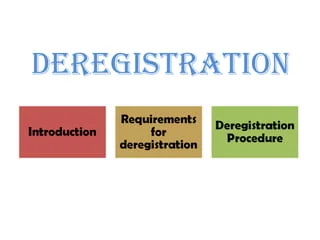In the dynamic realm of venture capital, where adaptability is key, the Capital Markets Authority (CMA) in Kenya has established clear guidelines for the deregistration of venture capital companies. Deregistration, while a last resort, is a tool wielded by regulatory bodies to maintain the integrity of the financial ecosystem.
The Capital Markets (Registered Venture Capital Companies) Regulations 2007 comprehensively outline the circumstances under which deregistration may occur and the subsequent steps to be taken.
Grounds for Deregistration (Regulation 23):
Deregistration of a registered venture capital company may be initiated under various circumstances:
- Voluntary Request: If the board of directors of the venture capital company requests deregistration in writing, the Authority may proceed with the process.
- Non-compliance: Deregistration may occur if the registered venture capital company no longer meets the requirements for registration or fails to comply with the stipulations of the Capital Markets Act.
- False Information: If returns or information filed by the venture capital company or its fund manager are discovered to contain false or misleading information, it could lead to deregistration.
- Failure to Take Corrective Action: If the venture capital company fails to address a breach, as indicated by the Authority within the prescribed time, deregistration may be enforced.
- Public Interest: If the Authority becomes aware of facts or circumstances that, in its opinion, warrant deregistration in the public interest, such action may be taken.
Notification and Publication (Regulation 24):
Upon the decision to deregister a venture capital company, the CMA follows a structured protocol to inform relevant stakeholders:
- Notification to Commissioner of Income Tax: Within five days of deregistration, the Authority notifies the Commissioner of Income Tax. This step ensures that the tax authorities are informed of the change in the registered status of the venture capital company.
- Publication in the Gazette: Within thirty days of deregistration, the Authority publishes the details of the deregistration in the Gazette. This public announcement serves to communicate the regulatory decision to the wider business community and the public at large.
Conclusion:
Deregistration is a regulatory tool that underscores the importance of compliance and transparency in the venture capital sector. By providing a structured framework for the deregistration process, the CMA aims to maintain the credibility of the financial ecosystem and protect the interests of investors. As Kenya’s venture capital landscape continues to evolve, adherence to these regulations becomes increasingly crucial for sustained growth and investor confidence.




